A balcony or a patio can be a great place to grow your favorite herbs for food. Here’s all you need to know on How to Make a Balcony Herb Garden!
The best thing about herbs is they are easy to grow, take less space, and are quick to harvest! If you have a little outdoor space—a windowsill, patio, porch, or just a balcony—you can start by following our guide on How to Make a Balcony Herb Garden!
Check out the most exotic herbs around the world
Best Herbs for Balcony Garden
While growing herbs depends on sunlight, space, weather, and climate. The most important point to note here is–The best herbs are the ones you like and cook with most often.
Some of the common annual herbs you can grow are basil, fennel, dill, coriander or cilantro, marjoram, parsley, and chives. You can also go for perennials like oregano, lavender, sage, thyme, mint, bay leaves, curry leaves, and rosemary.
For more details on which herb to grow
Choosing a Pot for Growing Herbs
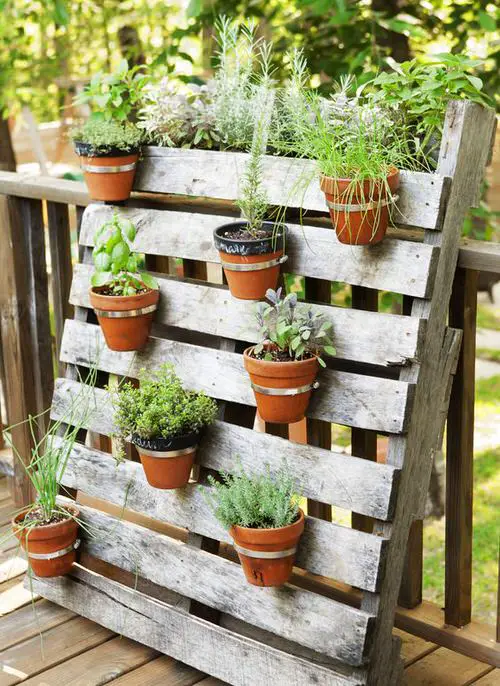
Herbs can easily grow in small pots; usually, 6 to 8-inch deep pots are fine for most herbs. You can also grow them in plastic bottles or create a vertical garden. It all depends on your resources and the size of your balcony.
How Should You Pot the Herbs?
Starting a herb garden on a balcony is a great way to have fresh herbs at your fingertips. Growing herbs can be easy, and the right planter choice can make all the difference. Depending on the size of your balcony, you may want to consider a variety of planter sizes to find what works best for you.
Railing planters, hanging baskets, grow bags, standard pots, buckets, vertical planters, and window boxes–there are plenty of options. Moreover, you can DIY your pots as well; check them out here.
For year-round herb growth, it’s best to use a herb and salad cloche. So, you may think, what is a cloche? It is a glass cover that protects plants from harsh weather conditions, such as frost during winter. Not only will the cloche protect your herbs, but it will also help your seedlings develop stronger root systems. This way, you can enjoy fresh herbs all year, no matter the weather. You can learn more about it here, and if you like, check out our list of mini greenhouse projects here.
How to Plant Herbs on the Balcony?
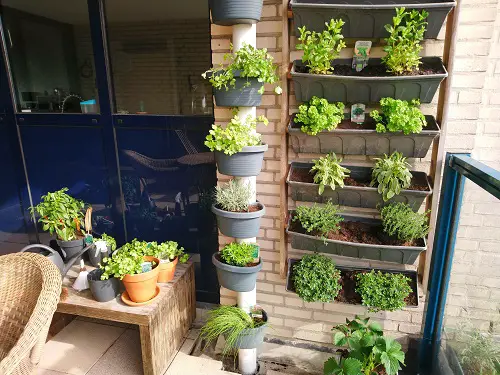
The best way to get herb transplants is from a nearby nursery or a garden center if you don’t have the time to sow them from seeds. Care for your plants more in winter to save them from freezing temperatures. You can buy a small greenhouse for this or make your own. If you live in the warm tropics, you need to care more during the scorching summer. Keep your herbs in the shade and water them more.
Starting an herb garden on your balcony is a simple and rewarding process.
Things You’ll Need:
- Herb seeds of your choice
- A seed tray or one of these seedling pots
- Seed Starting mix
- Pots with proper drainage
Follow these steps:
- Germinate the seeds in the seed tray by keeping them indoors (if the temperature is cold). Also, spritz them with water regularly.
- In about 7-10 days, the seeds should sprout. Transfer the seedlings into their main pot after 14-20 days once a set of true leaves appears.
- Slowly acclimatize the plants to outdoor temperatures by leaving them outside and bringing them back in. Then, keep increasing the time outside for over 7-12 days gradually.
- Most fast-growing herbs should be ready to pick and harvest in about 4-6 weeks.
Note: Strong and vigorously growing herbs like mint, rosemary, dill, and sage require plenty of space. Do not plant them near sensitive and low-growing herbs like thyme, marjoram, and creeping rosemary.
Learn How to Make a Windowsill Herb Garden
How to Care for Herbs in Balcony?
The Best Position
Most herbs grow best in full sun or partial shade. If you have a south, southeast, or southwest-facing balcony, you’re in luck!
Watering
Although herbs tolerate temporary shortages and excess water in the soil. Herbs growing in pots are more sensitive to dry and waterlogged soil. To save your plants from this, water regularly and choose pots with drainage holes. Be mindful of watering–never too frequently and never too late.
Fertilizing
Herbs don’t need to be fertilized much. You can use 5-10-5 or easily available 10-10-10 balanced liquid fertilizer. Dilute it to half to one-quarter to its strength. Feed them once every 2-3 weeks will be more than enough. Don’t feed in winter unless you live in a warm climate.
You can also mix aged compost or well-rotted manure when planting herbs in the potting mix. Side-dress it again during the mid-season.
Pinching and Trimming
Pinching back the top part, along with the first set of leaves, just above the leaf node will allow the non-growing lateral buds to grow, and the plant will become fuller.
Regular snipping results in more rounded and fuller leaves. Pruning herbs also encourages bushier and fresher growth.
We have a great article on pruning herbs
Harvesting Herbs
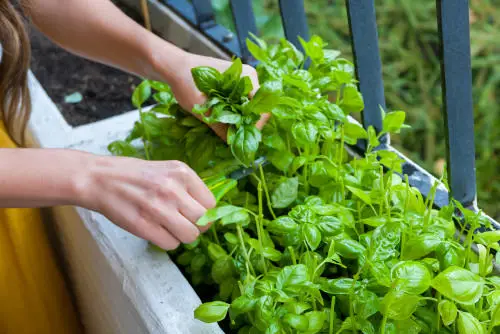
Do make sure that the herbs have reached a height of 4-6 inches before you start to snip/harvest them. Start harvesting the herbs when the plant has sufficient leaves to sustain growth. Harvest herbs in the early morning before the day’s heat and before they flower.
Also, to increase the longevity of your herbs, keep cutting back the flowers as soon as you see them.
Tips for Successful Balcony Herb Garden
1. Choose Smaller Pots
For slower-growing herbs such as rosemary, instead of starting with seeds, purchase a small plant from a garden store or nursery. Use a small pot because growing in a small pot will make the herb root-bound, and it will grow at a fast pace.
2. Harvest Them Slow
When harvesting herbs, only remove what you need, leaving enough leaves for the plant to live and grow. Don’t harvest until the plant has several established stems, which will help create a strong and healthy plant.
3. Germinate Seeds Early
Germinate seeds in early to mid-spring so you can move the herbs outdoors in the summer. If you live in a hot climate, start seeds in the fall or early winter.
4. Pinch off Flower Buds
Try to pinch off flower buds when they form, as many herbs will die after flowering.
Note: Flowers can drain energy from the plant.
5. Provide Enough Room
Give each herb enough space to grow, as it’s important to leave 8-15 inches around the roots of each herb to prevent competition for nutrients in the soil.
6. Water Early Morning
Water in the cooler hours of the morning, as the best time to water your herbs is in the early morning when temperatures are high, ideally between 6-10 AM. It will help in reducing evaporation and promote deep root soaking.
7. Maintain Healthy Soil
While watering and sunlight exposure are important, do not neglect the health of your soil. Taking care of the soil will ensure that your herbs receive the nutrients they need to thrive.
Other Plants You Can Grow in the Balcony Garden
Some other plants that you can grow in the balcony garden are:
1. Vegetables: Many vegetables can be grown in a balcony garden, including tomatoes, peppers, squash, cucumbers, and beans. If you have limited space, you may want to choose dwarf varieties or plants that can be grown in containers.
2. Fruits: Dwarf fruit trees, such as dwarf apples, peaches, and citrus trees, can be grown in a balcony garden. Other fruits that can be grown in a balcony garden include strawberries, blueberries, raspberries, and blackberries.
3. Flowers: Balcony gardens can be filled with beautiful flowers. Popular flowers for balcony gardens include petunias, impatiens, marigolds, and zinnias.
4. Succulents: Succulents are perfect for balcony gardens because they are low-maintenance and require very little space. Popular succulents for balcony gardens include aloe vera, jade plants, and echeveria.
5. Climbers: There are many types of climbers that can be grown in a balcony garden, such as clematis, honeysuckle, and jasmine. These climbers can provide additional privacy and can also be used to create beautiful displays.


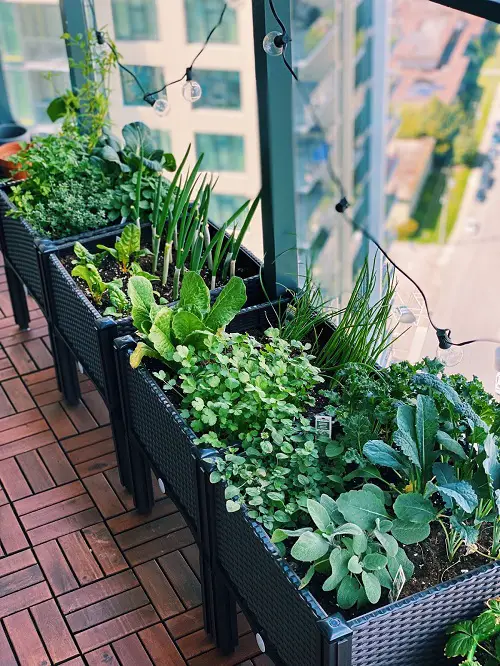
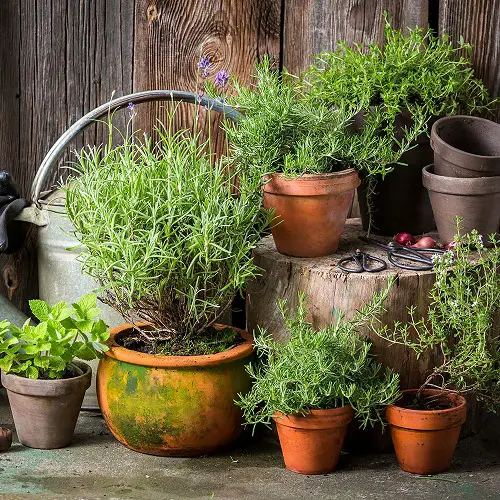
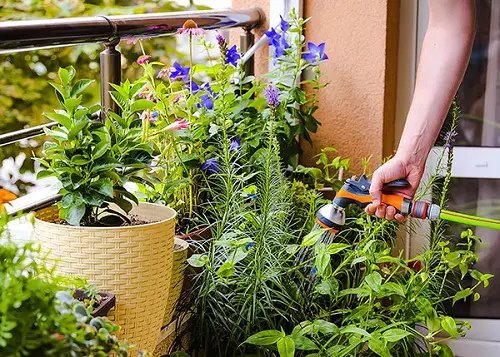
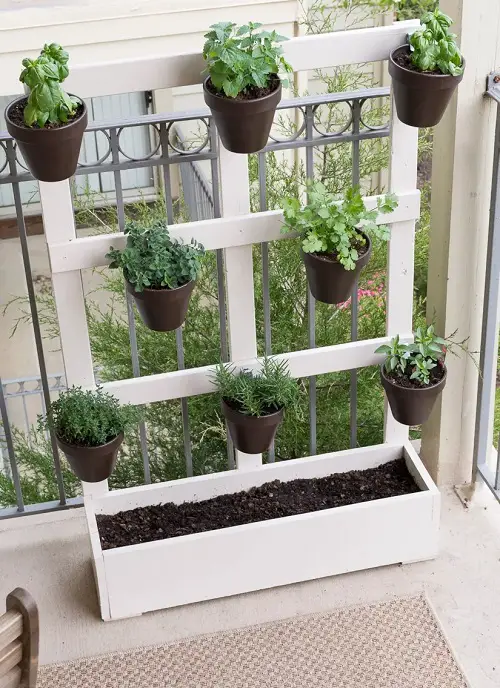
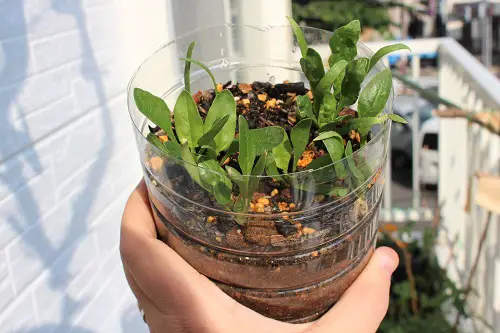
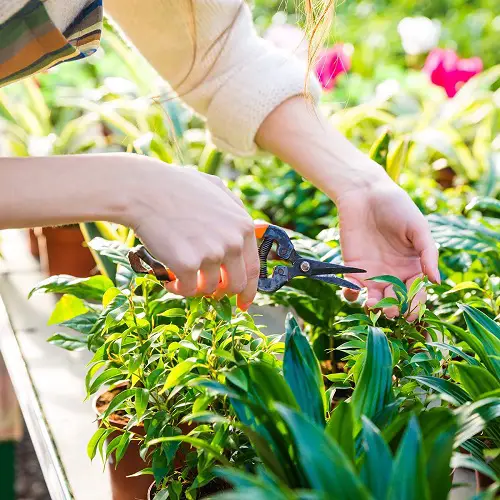
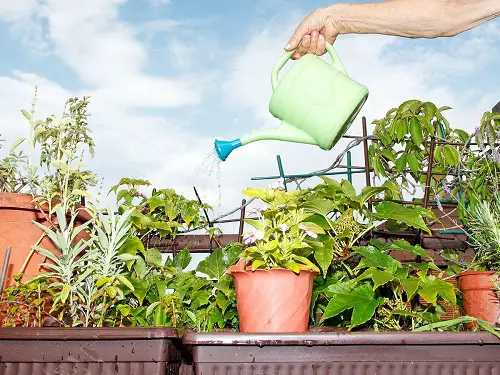
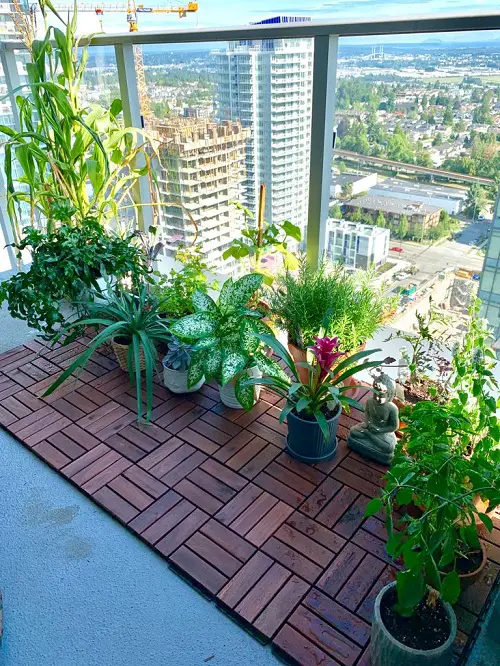

V nice post on herbs, it seems easy to grow my own herbs now.
Some very good information in the article but the title is misleading. It is anything but complete. There are lots of items covered in generalities that are not sufficiently informative on their own but need additional investigation by the reader. For example, your advice on pruning is very incomplete, and the proper method of harvesting basil is very different from chives. Your guidance on growing year round also varies greatly with location. Additionally, the hardiness of plants varies both among species and variants. Someone new to herbs may well think Rosemary is one plant and Basil is another but have no idea that there are temperature ranges for Rosemary that vary to being quite winter hardy into freezing temperatures while others have problems once the temperature drops below forty. Basil comes in both upright and prostrate varieties, and just like tarragon, not all variants are culinary. If you are in a humid area, lavender will be extremely difficult to grow, but lavenden, or “French lavender” can do quite well.
For anyone trying to grow herbs, balcony, in pots, in the garden, or wherever there are a few basic recommendations I would pass along.
1. The Herb Society of America has a web page, portions of which are open to non-members and is an excellent source of information. They can also advise you as to whether there are any HSA chapters, or Members at Large in their area who would also be good sources of information.
2. Many states have extension agents (mine is VA Tech) who typically have websites, offices and help lines that are good sources of information
3. It is true as the article stated that herbs in pots need more water than those in beds, but at the same time, overwatering kills more herbs than anything else I’ve seen. Combine that with improper soil mixture and you have a guaranteed recipe for failure.
4. It is worth spending some additional time online or in the library doing research on growing conditions in your area and plants that will do well in your growing zone.
Herbs are a great source of enjoyment to my wife and I. They look nice, we use them in culinary recipes (fresh always better than dried, but rule of thumb in recipes is 1 tsp dried is 1 Tbsp fresh). and if you have extra in season, there are a variety of ways to preserve them for use. Though again, drying, freezing, or other methods will vary by herb. You can enjoy them as well but knowing what you need to know makes things much more likely to be successful
It is very windy the higher up one lives in a condo; I’m only one level up! The building was just painted, so I thought now I’ll have pretty plants out. I didn’t realize that cheap trays would stain the floor and smaller pots would fall over spreading dirt all over the place!! One needs plants that withstand wind and heavier pots that won’t fall over.
Even if you’re careful about making your fire escape garden safe, you may still get in hot water with your landlord or the relevant authorities if it’s easily visible to people on the street. And your little herb friends deserve a safe space! So, basically, don’t be stupid. If the fire escape isn’t behind your building or is too small to safely fill with pots, think about some other apartment-friendly gardening options instead .